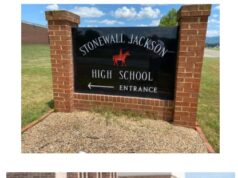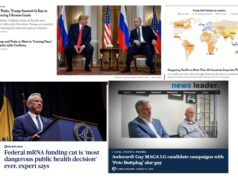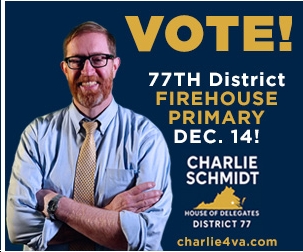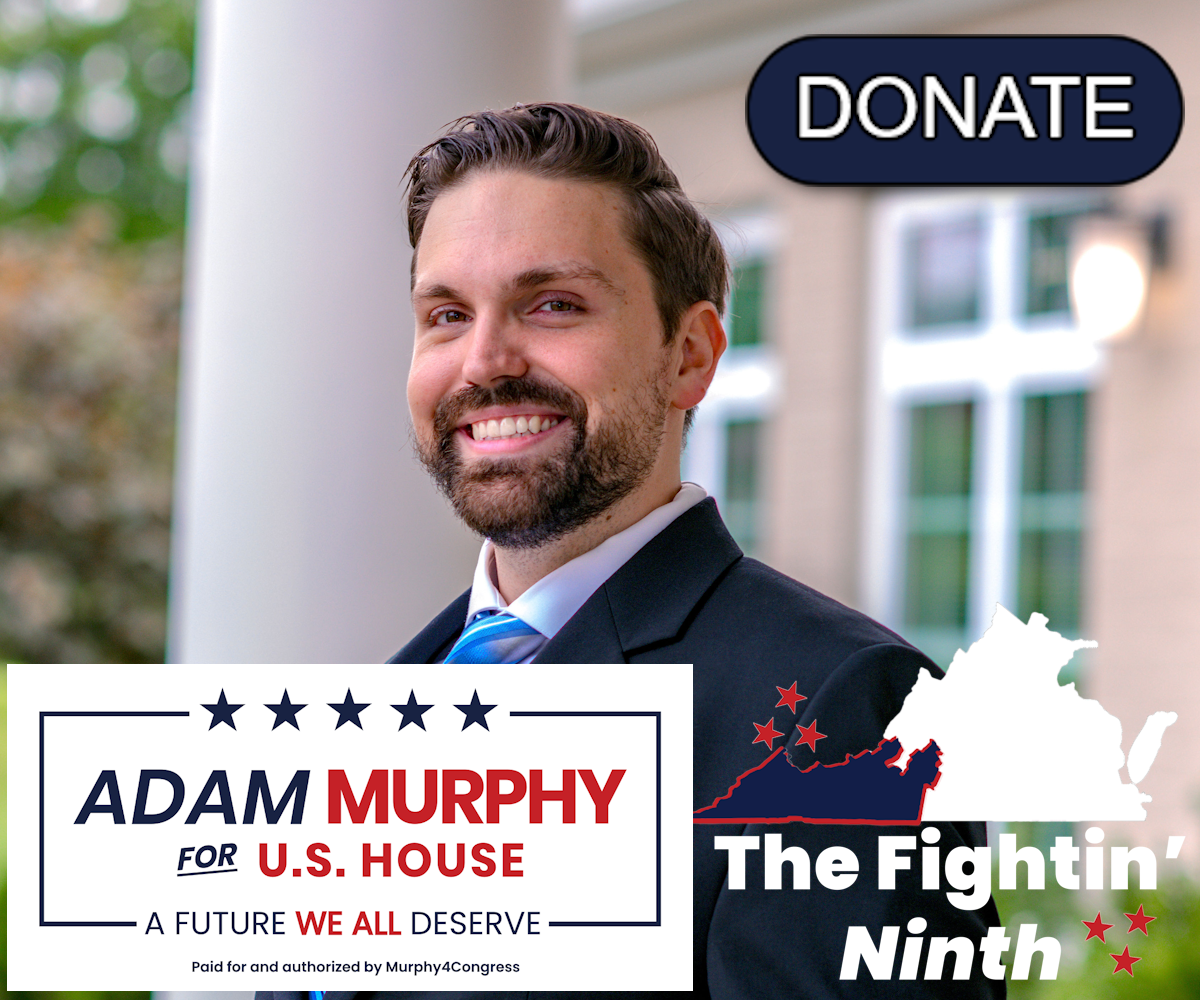by Jonathan Sokolow, an attorney, activist and small business owner who lives in Reston, Virginia
I first met Tom Perriello in late January at a small meet and greet at a bakery in Clifton. Donald Trump had been inaugurated and I had just attended the massive Women’s March on Washington. The positive energy of the March and the chants of “we will not go away, welcome to your first day” still rang in my ears. But, like millions of others, my question was what next?
I was interested to learn more about this young former Congressman from Charlottesville. I knew very little about Tom, other than that he had famously lost his seat in Congress in 2010 for voting for the Affordable Care Act and that he was now running an underdog campaign for Governor of Virginia. That was enough to intrigue me, but I came to the meet and greet with the questions I ask of every candidate: Will they fight for working women and men? Will they defend marginalized communities, labor rights and women’s rights? Do they understand – in their bones – the central role that slavery – America’s Original Sin – played and still plays in our country? Will they aggressively take on the great unfinished fight for racial justice?
These are not academic questions for me. I have spent more than 30 years as a public interest attorney, working in the criminal justice system and in the labor movement, representing public employees and retired UMWA coal miners. I have worked pro bono representing undocumented immigrants seeking political asylum and Vietnam Veterans poisoned by Agent Orange. I grew up in a house where my parents attended the March on Washington and where my father, also an attorney, became a founding member of the Lawyers Committee for Civil Rights Under Law and then traveled to Mississippi during Freedom Summer, the summer that saw the murder of Schwerner, Chaney and Goodman. I have lived a life of relative privilege, of both race and class, but I have been on more picket lines, protests, sit ins and vigils than I can remember, because I believe in the central role that struggle and sacrifice have played in the American story. I believe, as Frederick Douglass said, that “freedom is a constant struggle.” My reading of history and my lived experience inform my politics, so I have supported Democratic candidates for local, state and federal office since 1980 – sometimes with gusto, sometimes for lack of a better choice.
As I sat across from Tom in the Clifton bakery, I asked a few questions, but mostly I listened. Tom spoke in impressive detail and with a respectful and open tone. He talked about the intersection of the embryonic anti-Trump protest movement and governing policy in Virginia. He talked about the intersectionality of the struggles for social, racial and economic justice. I left impressed, but not quite convinced.
Three days later, on a Friday evening, Donald Trump signed his Muslim ban Executive Order and all hell broke loose. Within hours, attorneys, translators and Americans of all stripes instinctively flocked to airports across the country to protest and to help families caught in the chaos and confusion. I am not an immigration attorney and I did not know precisely how I could help at Dulles. I just knew I had to be there.
The scene at Dulles on Saturday morning was overwhelming and inspiring. Throngs of protesters chanted against the ban and greeted arriving passengers with applause and flowers. Attorneys scurried around, speaking to passengers and families to collect information on what was going on behind the closed doors of customs. Elected officials from Virginia, Maryland and beyond – and many candidates for elected office – flocked to the airport, stood with the protesters and gave supportive statements to the press. People of all faiths and all stations came not because they planned to do so, but because they just had to come. Tom Perriello was one of the leaders who came that first day, but he was different. Tom not only joined the protests, but he stayed for hours, long after the TV cameras disappeared, talking to the lawyers and vowing to do everything he could as Governor to resist the hate and bigotry coming out of the White House. The Washington Post noted:
Of the two Democrats running for governor this year, outsider Tom Perriello, a former congressman, was quickest to seize the moment. He appeared at Dulles on Saturday night, fresh from days of barnstorming around Northern Virginia, and issued a series of statements on social media condemning Trump’s action. Perriello also joined protesters outside the White House on Sunday, tweeting that he was there to “defend our constitution & conscience.”
As I helped connect confused travelers and family members to attorneys, I said hello to Tom – and I watched.
Missing from Dulles that Saturday was the second highest elected official in Virginia, Lieutenant Governor Ralph Northam, who was then, as now, a candidate for Governor. I asked a Northam supporter why he was not there and was told that maybe he was busy with legislative business in Richmond. Maybe he had “another commitment.” I found that unconvincing. So did the Washington Post: A spokesman “said Northam had a commitment in Petersburg early Sunday morning and could not make the trip up to Dulles in time.” It was a Saturday and the protests went on all day and into the night – Cory Booker even joined us at midnight. (That Northam supporter, by the way, is now supporting Tom Perriello.)
I returned to Dulles the next day, Sunday, and the scene was similar: hundreds of protesters and attorneys and chaos for travelers. The media was correctly reporting that the travel ban was the un-American product of the hatred spewed by Donald Trump during his presidential campaign and that the opposition was strong. More politicians arrived to stand with us and, once again, Tom came straight from the protest at the White House and joined us at Dulles, again staying for hours. And once again, Ralph Northam was nowhere to be seen.
That was it for me. My questions had been answered. As the chants of the protesters rang out, I went up to Tom, gave him my card and told him I would do anything I could to help elect him Governor. Here was a man who instinctively understood the historical moment in which we live, the importance of combining electoral politics with the politics of protest, a man who understood, in the words of Dr. King, the “fierce urgency of now.”
I went to Dulles Airport for four days. A flurry of court decisions put the travel ban on hold and within two weeks the throngs of attorneys and protesters had dwindled to an information table at baggage claim staffed by two or three volunteers. After it was all but over, Ralph Northam appeared at baggage claim for a photo opportunity, which his campaign promptly published as evidence that he had “stood with the protesters at Dulles Airport.” I remember thinking “much too little, way too late.”
In the coming months, I read everything I could find on Tom and I came to understand that he has a deep understanding of American history and its meaning for today. He talked at town halls about Eric Foner’s groundbreaking work on the Abolitionist Movement and post-Civil War Reconstruction and he recommended that people read Michelle Alexander’s “The New Jim Crow.” At a town hall in Fairfax, I heard him describe how some governors resisted the Fugitive Slave Act. Tom noted the irony – and his discomfort – at the idea of a southern governor asserting state prerogatives to resist federal overreach, but he vowed that he would use every legal tool at his disposal to make sure that Virginia did not become complicit in Trump’s hateful policy of harassment and ICE roundups in immigrant communities.
In early May, the federal Court of Appeals in Richmond heard arguments on a challenge to Trump’s revised Muslim ban. Hundreds of protesters marched around the courthouse to urge the Court to uphold the lower court’s decision striking down the ban. I had signed on to a friend of the court brief from attorneys who had been at the airports, so I knew that I had to be there to join the protest and to hear the oral argument. (The Court recently struck down the Muslim Ban.) Once again, Tom joined the protesters and held a press conference to highlight the moment. And once again, there was no sign of Ralph Northam.
The contrast between Tom’s “getting it” and Northam’s preference for “phoning it in” was on display once again a week later, when white supremacists staged a torch lit demonstration in a park in Charlottesville. It was an obvious attempt to instill fear in communities of color, a dark echo of the Night Riders and the KKK. It was a moment that required leadership and Tom Perriello responded to the moment. He went to Charlottesville to denounce this hateful action for what it was – an overt threat fueled by white supremacy. The following night, the good people of Charlottesville held a peaceful – and much larger – candlelight vigil to reject hate and bigotry. Tom gave a press conference to stress that Virginia must be a welcoming community and he said he would establish a commission on racial healing to honestly confront Virginia’s dark past and to chart a path forward for racial and economic justice. I have no doubt that Ralph Northam shares Tom’s general sentiments on this question, if not his specific solutions, but he was once again missing in action. Once again, Northam seemed unable to grasp the “fierce urgency of now.”
This campaign has made one thing clear. Tom Perriello shows up, stands up and fights. He shows up when and where he is most needed. He understands – in his bones – that America and Virginia are at a crossroads. We can choose a path of inclusion and healing, in the tradition of Virginia as the birthplace of American democracy. Or we can choose the politics of hate and division, in Virginia’s much darker tradition, of slavery and intolerance. Tom has made clear that he chooses the right path and that he will show up and fight for all of us – every day and in every way. This is precisely why Tom was willing to lose his seat in Congress to make sure that the rest of us have access to affordable, quality healthcare. Virginians of all backgrounds can be sure that Tom will be a warrior for justice because he has done so time and again.
The Northam campaign has attempted to flip this story and paint their candidate as the real “progressive” in this race. It is a story not matched by reality.
It is not simply that Northam used protesters at Dulles as props in a photo op, or that he failed to show up at the Court of Appeals in Richmond or that he was absent in Charlottesville when white supremacy reared its ugly head. Northam, for all his good qualities, is a self-described fiscal conservative who voted for George Bush twice. At a recent debate, Northam was asked what his greatest regret or mistake has been and what he had learned from it. His response was that he had no regrets.
Does Northam really not regret voting for George Bush twice? Does he not regret the fact that he voted for NRA sponsored legislation on fingerprinting, that he called “illegal immigrants…somewhat of a burden on our society” and opined that healthcare is a privilege and not a right? Does Northam not regret that he voted with Republicans to gut workers compensation coverage for dock workers in Hampton Roads, or that he recently said that it is not worth fighting to repeal Virginia’s right to work law?
Maybe Ralph Northam no longer holds these views, but Virginia progressive voters are not buying it. Tom Perriello has taken the lead in recent polls and he has amassed an impressive collection of endorsements from national leaders like Elizabeth Warren, Valerie Jarrett (Obama’s top aide), Kathleen Sebelius, John Podesta (Hillary’s campaign Chair), 30 top aides to President Obama, Zephyr Teachout and Bernie Sanders. Tom Perriello also has been endorsed by labor unions like the Virginia Association of the International Brotherhood of Electrical Workers, IUPAT (the Painters Union), the Keystone Mountain Lakes Regional Council of Carpenters, the Hampton Roads Building and Construction Trades Council and the Richmond Building Trades Council and progressive organizations like the Appalachian Chronicle, Peoples Action (whose leadership are Virginians), Progressive Change Campaign Committee, Climate Hawks, Our Revolution and Our Revolution Northern Virginia.
Beyond endorsements, Tom Perriello’s campaign itself has become a grassroots progressive movement. He has made more than 350 public and unfiltered appearances across Virginia and held more than 20 town halls from Southwest Virginia to the D.C. suburbs, events that have been attended by thousands of voters and been seen on Facebook live by almost 100,000 people. Because of this grass roots campaign, Tom has rocketed from nowhere to ahead in the polls in just a few months. He is winning by barnstorming across the state, while Northam meets in small groups of supporters and phones it in when big issues explode in the news.
That is why some seasoned observers are saying that Northam’s only chance to win the primary is if people don’t show up to vote – a terrible strategy for a Democrat and someone who claims to be “progressive” and a particularly bad strategy for a party that will need a massive voter turnout in an off-year election to win in November. In 2009, barely 300,000 people showed up to vote in the Democratic primary for Governor of Virginia and Creigh Deeds, a nice man who was considered a “safe” choice, won. Deeds went on to lose by 17 points in November.
In 2017, Democrats need a candidate for Governor who knows when to show up, stand up and fight. Democrats need a candidate who can mobilize new voters, young voters and communities of color to march as one to the polls in November to stop the politics of hate and to build a more inclusive Virginia. Tom Perriello has demonstrated again and again that he will be that type of candidate and that type of Governor. And that is why on June 13 we need to choose Tom Perriello to be the next governor of Virginia.



![Video: Former Eastern District of VA Federal Prosecutor Gene Rossi Asks, “Is Donald Trump going to be the lead counsel in that prosecution [of Jim Comey] and do the opening, closing and rebuttal? I pray that he does!”](https://bluevirginia.us/wp-content/uploads/2025/09/rossiedva-238x178.jpg)









![Video: Sen. Tim Kaine on “Meet the Press” Says DoJ Not Complying with the Law on Release of ALL the Epstein Files, But Argues “I think [impeachment/contempt for DoJ officials is] premature”](https://bluevirginia.us/wp-content/uploads/2025/12/kainemtp1221-100x75.jpg)

![Video: Rep. James Walkinshaw (D-VA11) Says “It’s enormously frustrating,” as “the law is clear…the full files were supposed to be released [yesterday] and the Trump administration is not in compliance with that law”](https://bluevirginia.us/wp-content/uploads/2025/12/walk1219-100x75.jpg)